Feature
-
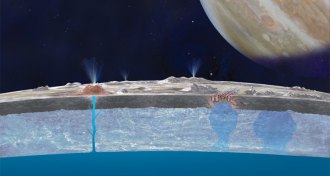 Planetary Science
Planetary ScienceThe ice of a distant moon
Jupiter’s moon Europa hides a liquid ocean, and conceivably life, under kilometers of ice. The challenge for engineers is how to penetrate that frozen barrier with technology that can be launched into space and operated remotely.
By Meghan Rosen -
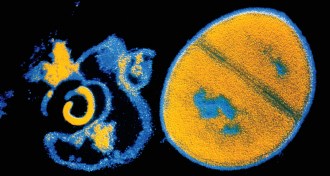 Health & Medicine
Health & MedicineUnsolved drugs
Long thought to launch precision attacks against bacteria, antibiotics may also cause lethal collateral damage, according to a controversial theory. Exploring how these compounds kill may reveal new ways to fight antibiotic resistance.
By Beth Mole -
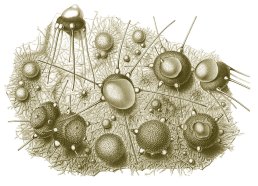 Life
LifeThe name of the fungus
A rebellion has broken out against the traditional way of naming species in the peculiar, shape-shifting world of fungi.
By Susan Milius -
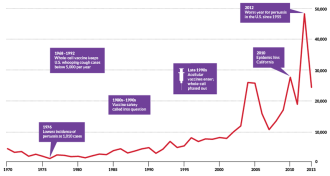 Health & Medicine
Health & MedicineWhooping cough bounces back
A new type of pertussis vaccine introduced in the late 1990s may have led to the return of a disease that was nearly eradicated 40 years ago. Public opposition to vaccination hasn’t helped matters.
By Nathan Seppa -
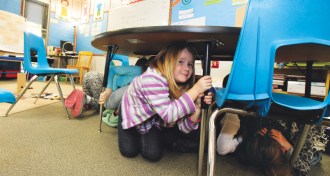 Earth
EarthBuying time when quakes hit
On the West Coast, geologists are developing an earthquake warning system that can provide seconds of notice before destructive shaking begins. The system could be ready before the next big quake hits.
-
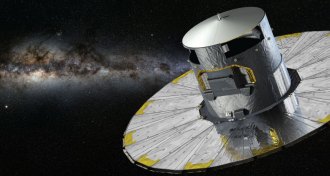 Cosmology
CosmologyCosmic question mark
Two ways of measuring the universe’s expansion rate disagree by about 10 percent. One of the methods may be flawed. Or it could be that a hitherto unobserved phenomenon is at work.
-
 Health & Medicine
Health & MedicineSudden death
Cardiologists disagree on whether electrocardiograms should be used to screen student athletes for a rare heart condition that can cause them to die suddenly and without warning.
By Laura Beil -
 Psychology
PsychologyThe addiction paradox
Addiction is often seen as a chronic disease that requires maintenance treatment even after years of sobriety. But even without help, most addicts eventually can quit for good.
By Bruce Bower -
 Climate
ClimateCloudy forecast
Over decades climatologists have grown more confident in their projections of the future impact of greenhouse gas emissions. But whether shifts in cloudiness will amplify global warming continues to vex researchers.
-
 Quantum Physics
Quantum PhysicsQuantum timekeeping
Recent advances in controlling the quantum behavior of particles have inspired physicists to dream of a global clock that would tell the same time everywhere. It would be hundreds of times as accurate as current atomic clocks.
By Andrew Grant -
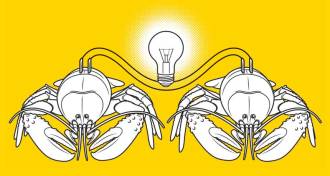 Tech
TechCreature power
Biological fuel cells that generate electricity by harnessing sugars and oxygen in the body may one day power implanted devices in humans and other animals.
By Sam Lemonick -
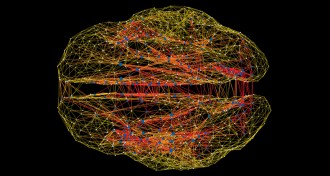 Neuroscience
NeuroscienceCataloging the connections
Though a complete map of the brain’s connections is many years away, the mathematical theory of networks can help fill in some of the blank spots.